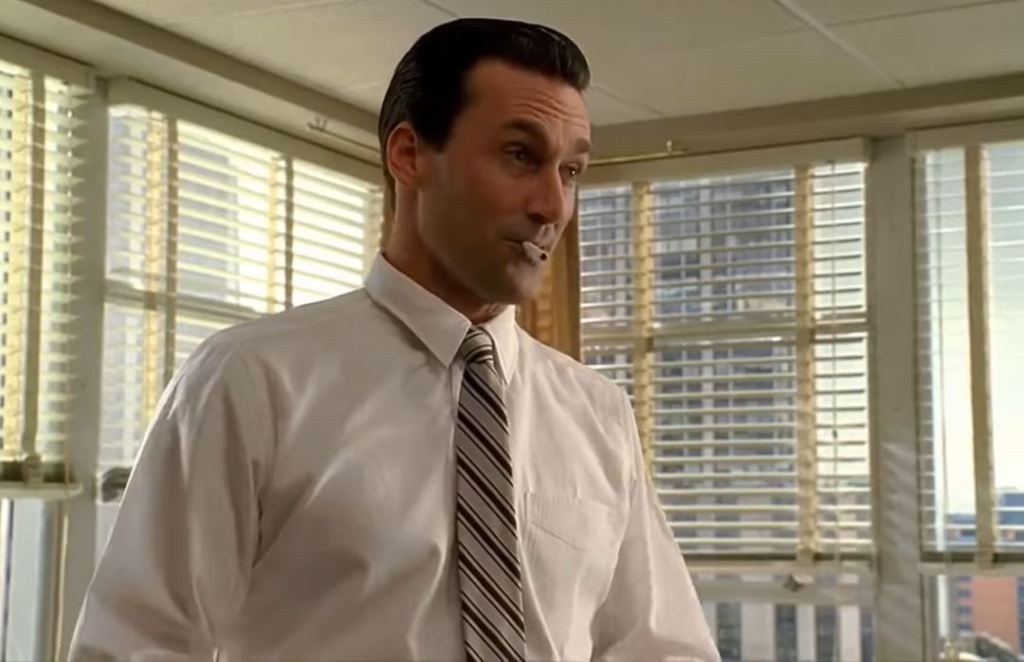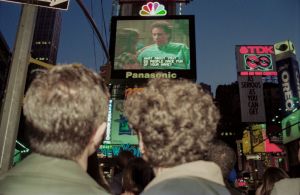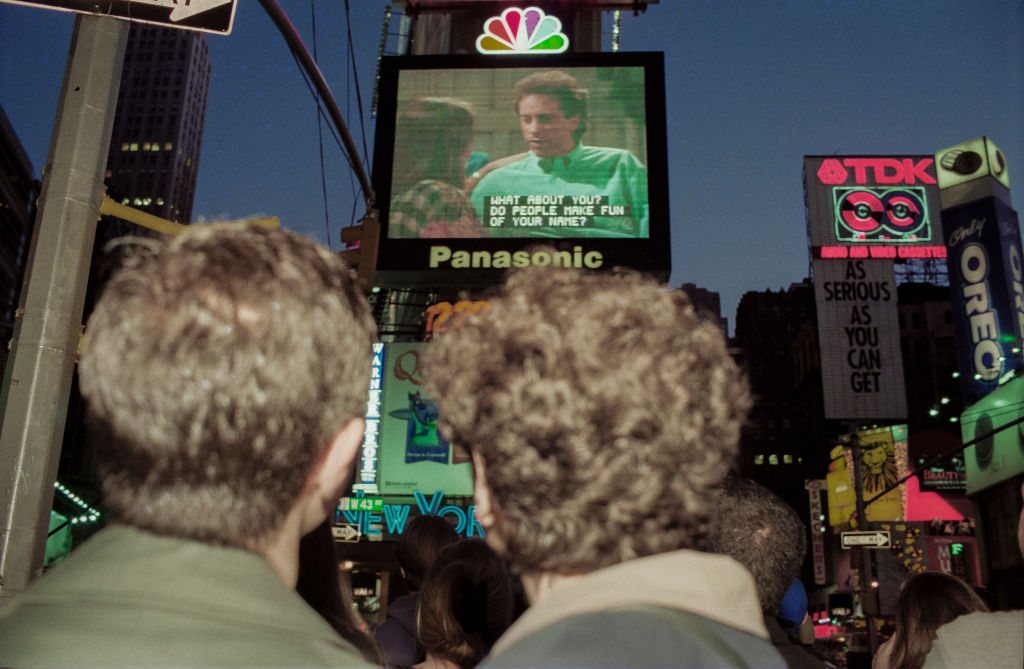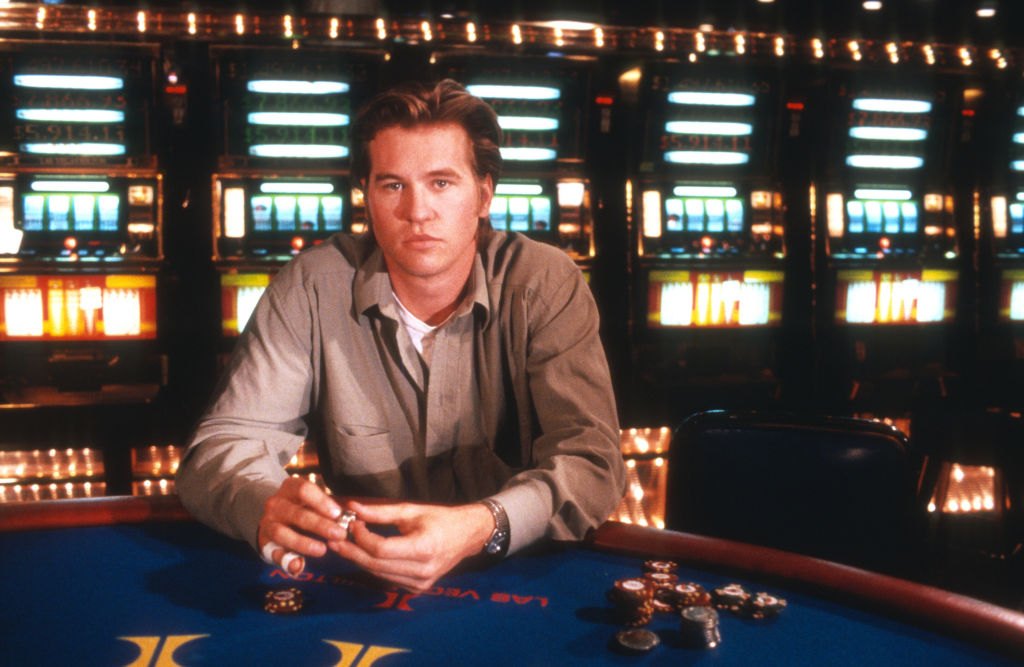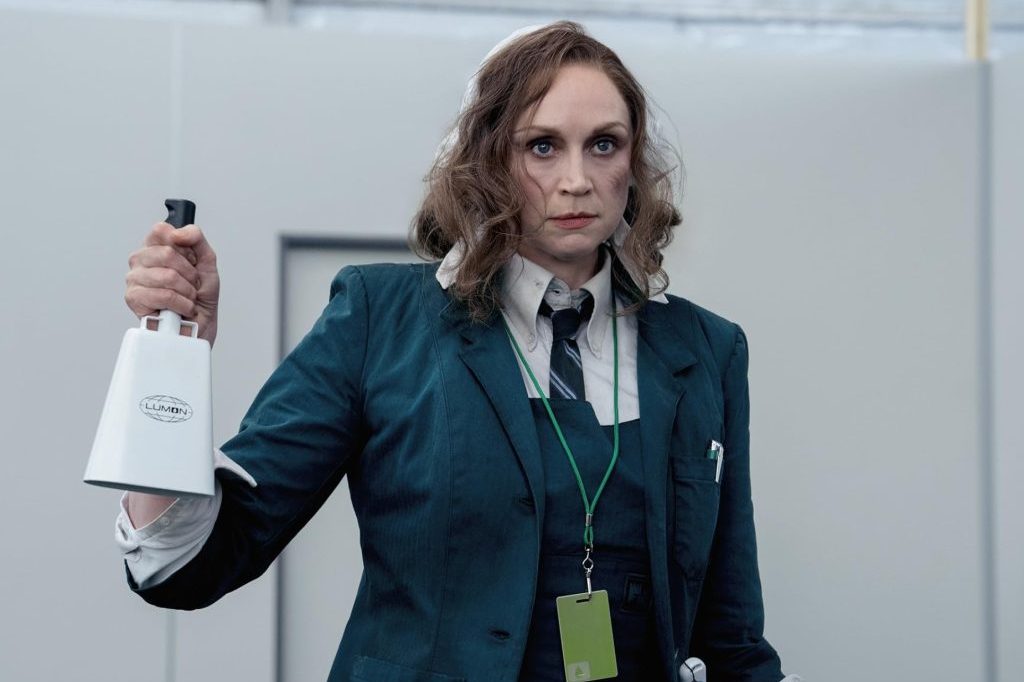If you were one of the many millions who watched Top Gun: Maverick this year, it may have been a pleasant surprise to see Jon Hamm in the (admittedly thankless) role of Vice Admiral Simpson, who has to look stern and angry at the various transgressions committed by Tom Cruise’s protagonist.
Hamm has been cornering the market in these sorts of roles thanks to his appearance of square-jawed rectitude. He is a natural fit for FBI agents, police detectives, and, indeed, vice admirals. But it was a different kind of vice altogether that he followed in his best-known and most beloved role, that of the dynamically charismatic — yet entirely fraudulent — Don Draper, advertising executive extraordinaire in Matthew Weiner’s cult series Mad Men, which was first broadcast on AMC fifteen years ago.
The show made stars out of Hamm, Elizabeth Moss (as Draper’s secretary-turned-copywriter Peggy Olson), Christina Hendricks (as the all-too-self-aware male fantasy figure Joan) and, in a more low-key way, Jared Harris, who found himself in the role of a lifetime as the doomed English financial controller Lane Pryce. Mad Men won tons of awards, though often found itself losing out to the flashier Breaking Bad. Hamm and Bad’s star Bryan Cranston seemed to have the Best Actor slot sewn up between the two of them for multiple years.
Mad Men and Breaking Bad have an inordinate amount in common, and not simply because they are two prestigious adult-oriented American television dramas. Both revolve around one of the oldest themes in drama: identity, and what it is like to gain the world and lose one’s soul in the process. Breaking Bad is a thrilling and sad journey into the world of Walter White, cancer-stricken high school chemistry teacher who accidentally discovers his vocation in becoming a master criminal. It goes awry, of course, but not without splendid drama along the way.
Mad Men is not quite so dramatic, but its central narrative arc — the transformation of Dick Whitman, high school dropout and drifter, into the ultimate Madison Avenue advertising man — has a similar mixture of cautionary tale and gleeful wish fulfillment at its heart. How many of us have wanted to cast off the constraints of a dull and unfulfilling life and embrace something fresh and new — and with such marvelously well-cut suits and such deliciously drinkable martinis at hand?
Weiner’s series never put a foot wrong over its seven-season, ninety-two-episode run. Anchored from beginning to end by the certainty and brilliance of Hamm’s performance (whoever described him as “a matinee idol with a hangover” nailed it), the show captured social and personal change in America in the Sixties, never descending into empty cliché or vacuous sloganeering in an attempt to make its points. Unlike so many other shows, it presented sexism, racism and discrimination in a matter-of-fact fashion, rather than with the anachronistic horror that viewers might expect. It understood that the presentation of the advertising industry — smoke and mirrors at its most glossy and most pernicious — was superficially seductive yet barely concealed the ice and vacuousness at the heart of the profession. There may have been a boom in recruitment for advertising executives in 2007, but by the time the show finished in 2015, few wanted to be Don Draper.
There is so much else to praise — perhaps the best ever use of a Beatles’ song (“Tomorrow Never Knows”); the complexity and charisma of John Slattery’s performance as Draper’s colleague Roger Sterling; the outfits and settings; the wit and constant surprise of the storylines. But ultimately the reason why Mad Men endured through its seven seasons, and is likely to be watched until television ceases to exist, is because it makes the viewer take a long, hard look at who they are.
Nietzsche wrote, “He who fights with monsters should be careful lest he thereby become a monster. And if you gaze long into an abyss, the abyss will also gaze into you.” The protagonists of Weiner’s brilliant, complex show may not be monsters, but they have all gazed into the moral abyss. It is to Mad Men’s endless credit that the viewer feels complicit, rather than merely detached. This reluctant complicity is why this indelible show remains so vital, a decade and a half after Don Draper first lit a Marlboro and changed the face of television.



